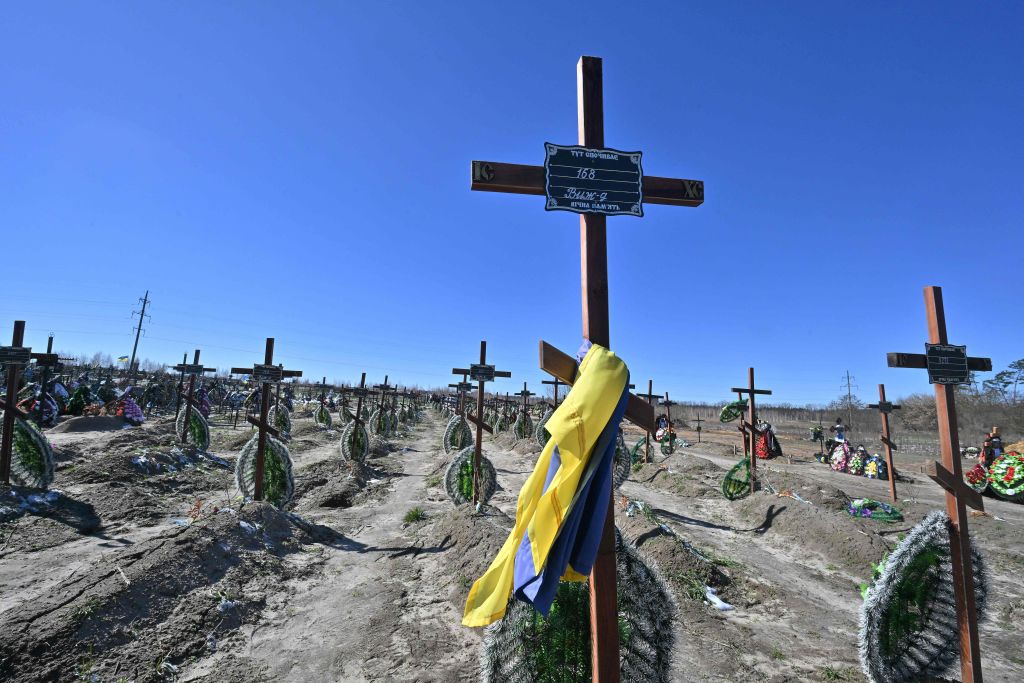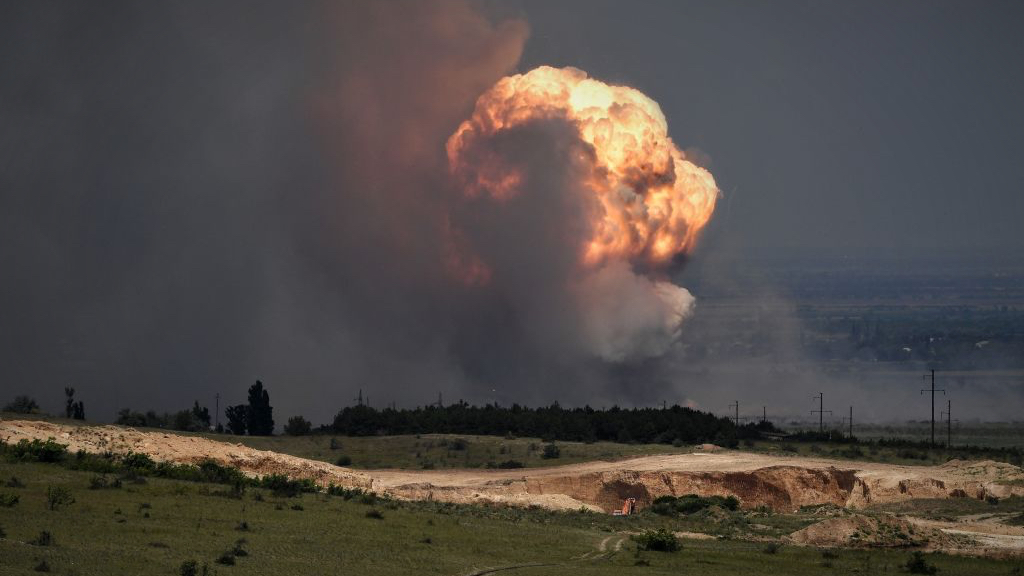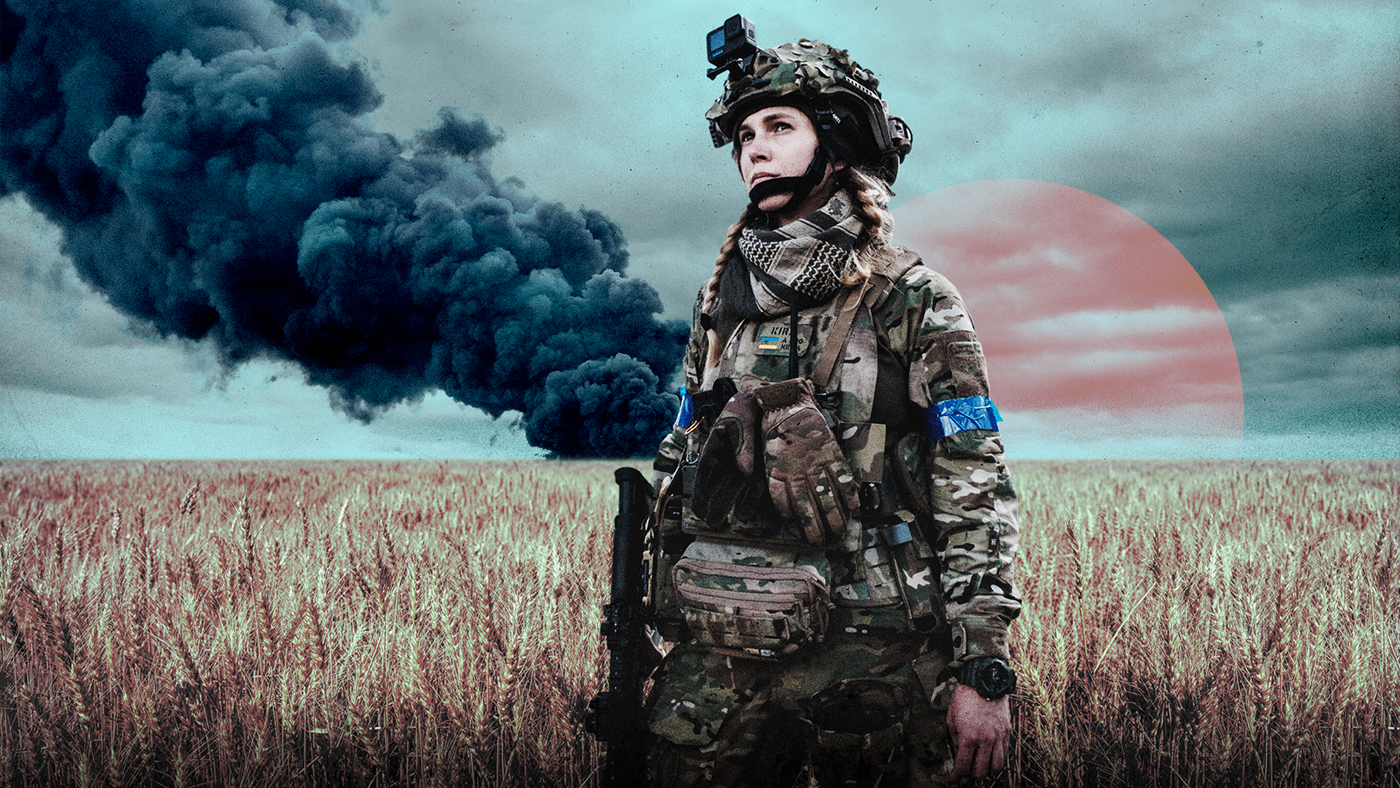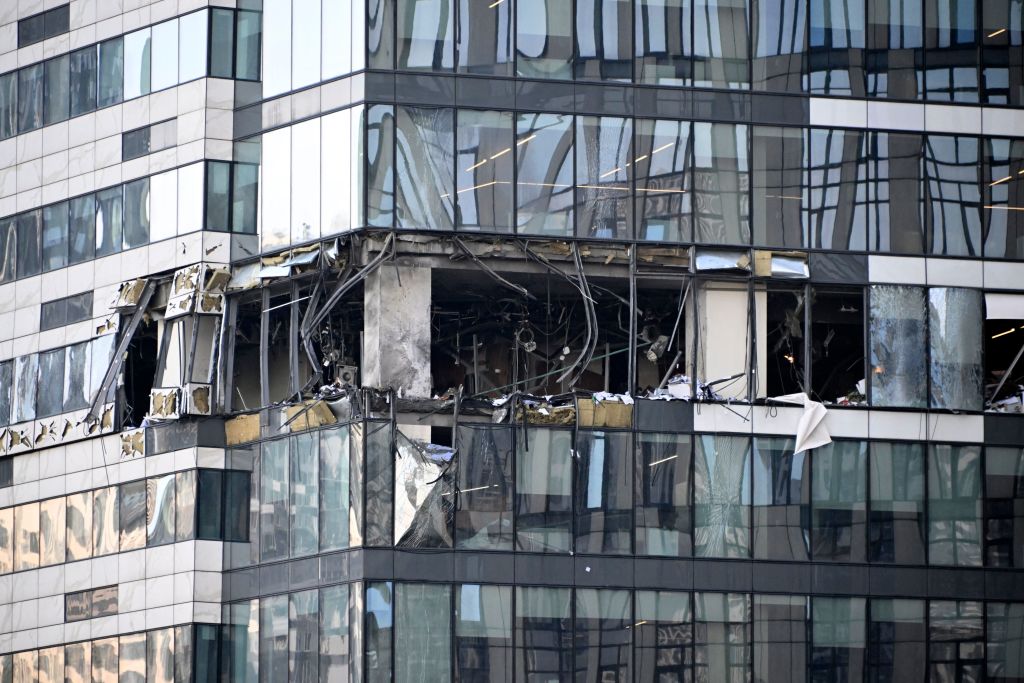Inside Russia's war crimes
Occupying forces in Ukraine are accused of horrific atrocities. Can they be held accountable?

A free daily email with the biggest news stories of the day – and the best features from TheWeek.com
You are now subscribed
Your newsletter sign-up was successful
Occupying forces in Ukraine are accused of horrific atrocities. Can they be held accountable? Here's everything you need to know:
What are invaders accused of?
Ukrainian prosecutors have registered about 90,000 potential war crimes committed by Russian forces since the February 2022 invasion. That staggering figure likely represents just a fraction of the horrors inflicted on Ukraine's civilians and captured soldiers. Hundreds of thousands of Ukrainians, many of them children, have been deported to Russia against their will, to be "re-educated" and turned into Russians loyal to Moscow — a war crime under the Geneva Conventions. Invaders have destroyed critical food infrastructure to starve civilians, fired missiles into hospitals and schools and apartment houses, and even bombed lines of people waiting for bread and water. In liberated towns such as Bucha and Izium, hundreds of corpses of men, women and children were found in mass graves, some mutilated or with hands tied behind their backs. In liberated Kherson, about 20 torture chambers were found, and the 1,000-plus survivors told of being waterboarded, electrocuted, raped, and paraded naked in the street. The Kremlin claims atrocities have been either staged or committed by Ukrainian "Nazis." During a hearing on the atrocities, House Foreign Affairs Committee Chairman Michael McCaul (R-Texas) said it was clear that Russia is engaged in a systematic campaign to erase Ukrainian identity and destroy the Ukrainian people. "These are more than crimes against humanity," McCaul said. "What we are witnessing in Ukraine is genocide."
How pervasive is sexual violence?
A United Nations commission found "patterns" of Russian forces using rape to dehumanize and demoralize captives. An 83-year-old woman described being raped by a Russian soldier in front of her physically disabled husband. In another case, Russians raped a woman with her husband present, sexually assaulted the husband, then forced their 4-year-old girl to perform oral sex on a soldier in front of both parents. In Russian detention centers, prisoners have been raped with batons and had electric shocks delivered to their genitals. A video posted on pro-Russian Telegram channels showed a Russian soldier wearing blue surgical gloves as he used a box cutter to castrate a writhing, gagged male Ukrainian soldier. A second video showed the prisoner dead, with his testicles stuffed in his mouth. There are reports of Russians raping Ukrainian women, then injecting window sealant in their vaginas, to prevent them from having children.
The Week
Escape your echo chamber. Get the facts behind the news, plus analysis from multiple perspectives.

Sign up for The Week's Free Newsletters
From our morning news briefing to a weekly Good News Newsletter, get the best of The Week delivered directly to your inbox.
From our morning news briefing to a weekly Good News Newsletter, get the best of The Week delivered directly to your inbox.
Are Russian higher-ups complicit?
Russian commanders reportedly tolerate or even encourage sexual torture, in some instances ordering rape or condoning it implicitly — telling troops to find "relaxation" after capturing a village. Ukrainian prosecutor Iryna Didenko said torture methods used in detention centers across Ukraine mirror techniques used by Russia's FSB intelligence agency to break and penalize prisoners. "It cannot be that a soldier did this without an order," Didenko said. "It's surely a system."
What's the Wagner Group's role?
The mercenary group, funded by the Russian state until its recent rebellion against the Kremlin, is notorious for slaughtering and raping captured soldiers and civilians in Mali, the Central Africa Republic, and Syria. Wagner fighters — many of whom are violent convicts recruited from Russian prisons — are accused of committing thousands of savage war crimes in Ukraine, including male-on-male rape. This practice, said Ukrainian political scientist and philosopher Volodymyr Yermolenko, likely is a carryover from the prisons that many Wagner mercenaries came from. "Either you are dominating, or you are dominated," Yermolenko said.
Why are troops capable of such evil?
Russian soldiers have been indoctrinated by state propaganda that depicts Ukrainians as Nazis and as traitors to the fatherland. In February, the Associated Press published transcripts of intercepted phone calls between Russian troops (many of them drunk) and loved ones back home. Some said they'd been ordered to kill civilians or prisoners. Many justified their looting and other crimes. One Russian mother told a reporter, "My son just said one thing: 'My conscience is clear. They opened fire first.'" Recently, a New York Times reporter found graffiti left by Russian occupiers in an eastern Ukraine village. "It doesn't count as a war crime if you had fun," one message said, accompanied by a smiley face. Another message read, "For all questions about Ukraine there are 2 answers: 1) It didn't happen. 2) they deserved it. Both are correct."
Will perpetrators be punished?
Ukrainian prosecutors have convicted roughly 30 captured Russian troops of war crimes, and prosecutors say they're pursuing dozens more cases against Russians accused of sexual violence. In March, the International Criminal Court issued an arrest warrant for Russian President Vladimir Putin for the alleged forced deportation of Ukrainian children, but the ICC lacks jurisdiction in both Russia and Ukraine. Whether Russian leaders are ever held responsible is a vexing legal question and hinges, of course, on a Ukrainian victory. Should Ukraine prevail, investigations and military tribunals will likely uncover far more crimes than are currently reported; victims often say nothing out of trauma and shame. "It is very hard for them to open up," Ukrainian psychologist Lilia Sidun said. "It won't be until the end of the war that people will really talk about these times."
A free daily email with the biggest news stories of the day – and the best features from TheWeek.com
Surviving hell
Ukrainians have awed the world with their perseverance, but humans can only endure so much. One girl who was sexually assaulted said she wanted to cut off her own skin and couldn't bear the smell of men's cologne. Anzhelika Yatsenko, a psychologist in the central city of Poltava, said she had to excuse herself to weep in a bathroom after meeting two Ukrainian soldiers, ages 25 and 28, who were beaten in captivity, then castrated. "If there's hell somewhere, it's worse than that," one of them told her. One of the men later returned to the front. "He wants to kill Russians," Yatsenko said. "He may feel his life is worth nothing and just wants to die." In March, Russian forces invaded a village, dragged Viktoria Martsyniuk, 42, from bed, and raped her. Then they executed her neighbor in front of her. "I feel a little bit better with the therapy," Martsyniuk says, "but I would like to improve, and if Ukraine has victory I will feel even better."
This article was first published in the latest issue of The Week magazine. If you want to read more like it, you can try six risk-free issues of the magazine here.
-
 How the FCC’s ‘equal time’ rule works
How the FCC’s ‘equal time’ rule worksIn the Spotlight The law is at the heart of the Colbert-CBS conflict
-
 What is the endgame in the DHS shutdown?
What is the endgame in the DHS shutdown?Today’s Big Question Democrats want to rein in ICE’s immigration crackdown
-
 ‘Poor time management isn’t just an inconvenience’
‘Poor time management isn’t just an inconvenience’Instant Opinion Opinion, comment and editorials of the day
-
 Celine Dion 'civil war' in New Zealand
Celine Dion 'civil war' in New ZealandTall Tales And other stories from the stranger side of life
-
 Woman lives with needle in brain for 80 years
Woman lives with needle in brain for 80 yearsTall Tales And other stories from the stranger side of life
-
 Russia's Crimea fleet shipyard on fire after Ukrainian missile strike
Russia's Crimea fleet shipyard on fire after Ukrainian missile strikePhotos and videos showed huge explosions and raging fires at the Sevastopol Shipyard
-
 Nobody seems surprised Wagner's Prigozhin died under suspicious circumstances
Nobody seems surprised Wagner's Prigozhin died under suspicious circumstancesSpeed Read
-
 Has Ukraine's counteroffensive become a 'war of attrition?'
Has Ukraine's counteroffensive become a 'war of attrition?'Today's Big Question An expected thrust has turned into a slog
-
 Saudi Arabia to host Russia-less Ukraine peace talks, Kyiv confirms, as Moscow hit by more drones
Saudi Arabia to host Russia-less Ukraine peace talks, Kyiv confirms, as Moscow hit by more dronesSpeed Read
-
 Is the 'vibecession' over?
Is the 'vibecession' over?Speed Read The IMF reported that the global economy is looking increasingly resilient. Is it time to start celebrating?
-
 The U.S. veterinarian shortage crisis
The U.S. veterinarian shortage crisisSpeed Read With an anticipated shortage of 15,000 vets by 2030, it will be harder to get care for pets